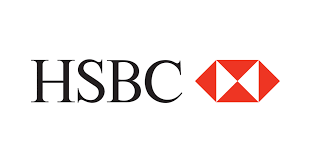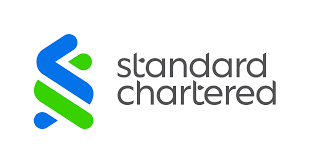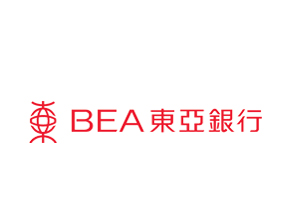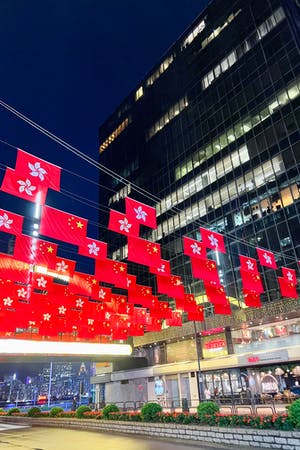Top Banks in Hong Kong
Hong Kong is the Special Administrative Region of the People's Republic of China.
Hong Kong is the Special Administrative Region of the People's Republic of China. It is located in southern China, bordering Shenzhen and across the sea from Macau.

Economically, HKSAR has always been southern China's most important trading port. It has also been a center of international finance, shipping, trade, and technological innovation in the Asia-pacific region.
Financial activities in Hong Kong developed slowly after 1842. The Oriental Bank Corporation, the first British Bank, was established in Hong Kong in 1845. After the Second World War, Hong Kong's financial industry entered a period of rapid development.
After 1950, Hong Kong gradually became the financial center of Asia. Now the financial industry in Hong Kong has become one of the essential pillar industries.
Hong Kong, New York, and London are the world's three largest financial centers. This makes it enjoy a high reputation in the world. The top banks in Hong Kong include the following:
Hang Seng Bank Limited
Hang Seng Bank Limited, headquartered in HKSAR, is a listed company mainly engaged in business in Hong Kong and mainland China. Founded in 1933, its main businesses include personal finance, commercial finance, financial management, and private banking.

It has 260 service outlets in HKSAR and 46 branches and sub-branches in Mainland China, located in Beijing, Shanghai, Nanjing, Shenzhen, Hangzhou, Ningbo, Tianjin, Xiamen, Zhuhai, and other places.
By mid-2020, its total assets amounted to HK $1,732 billion. Hang Seng Bank's name means "eternal growth."
In 1965 there was a major banking crisis in Hong Kong. Large numbers of bank customers began to rush to withdraw their money, causing a run on the bank. Hang Seng Bank turned to HSBC for help, fearing that further development of the incident would significantly impact the company.
It later joined HSBC and became a member of the HSBC Group. After entering the HSBC Group, Hang Seng Bank expanded its business, mainly targeting small and medium enterprises.
In 1969, a public service "Hang Seng Index" was introduced, which is now commonly referred to as the Hong Kong stock market index. In 1972, Hang Seng Bank went public. Today, Hang Seng Bank is the largest locally incorporated listed bank in Hong Kong.
HSBC
HSBC is the Hong Kong and Shanghai Banking Corporation Limited. When it comes to Banking in HKSAR, one has to talk about such companies. HSBC is now the largest registered company in Hong Kong and one of the three banks issuing HKD.

HSBC Holdings PLC owns the company. It was founded in Hong Kong in 1864, with its headquarters in Victoria House on today's Bank Street. It was founded by Jardine Matheson and 15 other foreign companies.
HSBC was named after its primary business location, as was common practice among British joint-stock banks at the time. HSBC also acquired the right to issue HKD over the same period.
HSBC opened its first branch in Shanghai in April 1865. In the years that followed, HSBC set up branches or correspondent banks in London, Japan, and Thailand. In mainland China, HSBC has established branch networks in Shanghai, Guangzhou, Hankou, Fuzhou, Ningbo, and other places.
By 1900, HSBC had become the largest bank in Asia, and the foreign exchange managed by HSBC had accounted for more than half of the Foreign exchange market in Shanghai.
After 1949, HSBC's business in mainland China was closed one after another, leaving only the Shanghai branch to continue to operate. Then, in 1965, a bank run in Hong Kong led to a banking crisis at Hang Seng Bank, HSBC's rival at the time.
At this time, HSBC bought a controlling stake in Hang Seng Bank, acquiring a 51% stake. In 2007, HSBC (China) Limited was established as a wholly-owned subsidiary of the Hong Kong and Shanghai Banking Corporation.
It now has 26 branches and 91 sub-branches in mainland China. HSBC ranked 43rd on Forbes' list of the 100 most valuable global brands in 2020. It was included in the Forbes Blockchain 50 list during the same period.
BOCHK
BOCHK stands for Bank of China (Hong Kong) Limited. The company is a subsidiary of the Bank of China. Founded in 2001, BOCHK merged the operations of 10 of the 12 banks of the former Bank of China Group in HKSAR.

Bank of China is one of the three note-issuing banks in HKSAR and one of the rotating chairmen of the Hong Kong Association of Banks. The bank was listed on the main board of the SEHK in 2002.
The bank is a component of the Hang Seng Index. China's banking business includes commercial banking, corporate business, personal financial business, and so on. The bank is headquartered in the Bank of China Building in Central.
Involving the CNY in HK, BOCHK has been the Designated Clearing Bank for personal transactions involving the CNY in HK since 2004. The banking group now employs more than 15,000 people.
By 2021, the total assets of BOC Hong Kong reached HK $3,639.43 billion, and the annual revenue of 2021 was HK $24.999 billion. Its parent company, Bank of China, is ranked 13thaccording to the world's top 2000 companies published by Forbes in 2022.
Citibank Hong Kong
Citibank's business in HK dates back to 1902. The bank is headquartered at 3 Garden Road, Central. Citibank now has a total of 48 branches in HK for individuals and businesses, including retail banking, private banking, investment banking, and other financial services.

Now Citibank has become one of the largest foreign financial institutions in HK. The bank uses its expertise to serve more than 1 million clients and offers customized wealth management services for the high net worth population.
The bank now has about 4,600 employees. Its long history and professional service by the majority of customers trust. In terms of mobile financial services, Citibank has partnered with SK Telecom. As a result, mobile Money Ventures were founded.
In 2008, the bank launched a mobile banking service, which helps its customers conduct business on mobile phones, such as transfers, investments, time deposits, payments, stock quotes, etc.
Standard Chartered Bank Hong Kong
Standard Chartered Bank entered HKSAR in 1859 and opened its first branch. Now the bank is one of the three significant issuers of HKD. The bank's HKD issuance accounts for about 10% of the total HKD issuance. HKSAR is the bank's biggest market, and its headquarters are in the Standard Chartered Tower.

In July 2005, Standard Chartered Bank announced that it had signed a partnership agreement with Hong Kong Disneyland to become the development bank of the park, with seven teller machines in the park to serve visitors.
The bank is now in private banking, retail banking, and wealth management. The bank's parent, Standard Chartered, is listed on the London and SEHK. And its shares are among the top 25 companies in the FTSE 100 index.
The bank's parent company, Standard Chartered, is ranked 351st in Forbes' list of the world's top 2000 companies. There are 75 branches of HKSAR in total.
BEA (Bank of East Asia)
Bank of East Asia Limited is an HKSAR-based financial services company. The bank was first established in 1918 and officially opened in 1919. The Bank of East Asia is now the largest local bank in the HKSAR. BEA provides retail and commercial banking services to the HKSAR.

Bank of East Asia is listed on the SEHK and was a constituent of the Hang Seng Index until 2018. BEA has long been considered one of the most influential financial services companies in Hong Kong.
BEA now has 58 branches and several financial centers in HKSAR. In addition, the Bank of East Asia (China) Limited was officially established in mainland China in 2007.
Subsequently, it opened branches in more than 40 cities across the country, becoming one of the Hong Kong-funded banks with the largest network in mainland China.
In the international business segment, BEA acquired Grand National Bank in 2001 to expand the banking group's North American operations.
Now BEA has its network in many countries in Asia, Europe, and America. As of 2021, BEA's total consolidated assets amounted to HK $907.47 billion.
Conclusion
HKSAR is a highly free economy. Finance, trade and logistics, tourism, and service are the four major industries in HKSAR. In this market, many world-renowned enterprises have been born.

These enterprises have led the Hong Kong economy's development and the HKSAR economy's rapid development.
HKSAR is a founding member of the WTO. Internationally, HKSAR has been ranked as the freest economy in the world for 25 consecutive years. In addition, it has long been in the top 10 of Forbes' best places to do business.
In finance, HKSAR's banking, securities, and insurance industries are highly developed due to their high degree of freedom, openness, and perfect system management.
Its position in the Asia-Pacific region is very high. And that makes HKSAR one of the world's most active and liquid cities.
In terms of trade, Due to its unique geographical position, Hong Kong has become one of the most important ports linking China and the West. In addition, HKSAR is a natural harbor and the ninth-largest container port in the world.
Its cargo volume is very high. As a policy, HKSAR pursues a simple low-tax policy and encourages global freight and trade.
Hong Kong International Airport (HKIA) remains one of the busiest airports in the world in terms of aviation, with consistently high passenger and cargo volumes.
The value of freight transport accounts for more than 40% of Hong Kong's foreign trade. By 2020, nearly 4,000 international companies will have set up headquarters or offices in HKSAR.
Covering wholesale and retail, import and export trade, finance, transportation, and other industries. More than 300 international conferences are held in HKSAR every year. This has boosted Hong Kong's tourism and service industries.
HKSAR has experienced two economic transformations in its history. Before 1950, HKSAR relied on its unique geographical location and natural ports for trade. By 1970, HKSAR's industrial exports accounted for 81% of total exports.
This period of transformation transformed HKSAR into an industrial city. After 1980, HKSAR developed finance, real estate, and tourism. After HKSAR returned to China, a large amount of Hong Kong's manufacturing industry moved to mainland China.
HKSAR's service sector will be given more room for development. During this period, Hong Kong's service industry developed in an all-round way, which also realized the second transformation of HKSAR from an industrial city to a service industry.

HKSAR is now known as the pearl of the Orient, the paradise of food and shopping. The vigorous economic development of HKSAR has driven the economic development of Asia.As the business and transportation hub of China and the West.
HK SAR provides a channel for overseas investors to invest in Chinese enterprises and a platform for Chinese enterprises to go international.










or Want to Sign up with your social account?